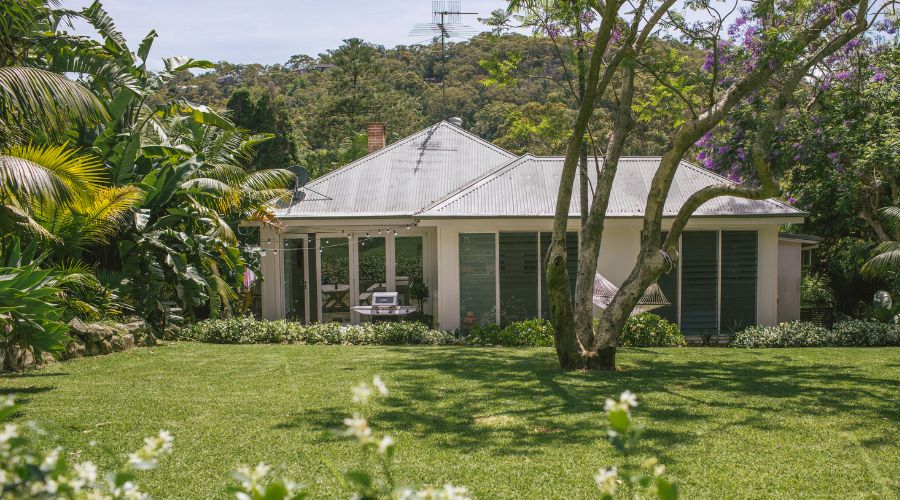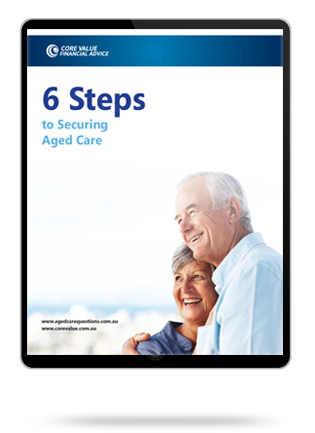The aged care family home exemption rules allow your former home to be exempt from aged care assessment, provided that certain conditions are met.
Understanding how the home exemption rule applies can not only reduce aged care fees, but also help you decide whether the family home should be retained or sold.
This article explains how the aged care family home exemption works, when it applies, as well as how the family home is assessed for Age Pension purposes.
In This Article
- How Does the Aged Care Family Home Exemption Work?
- How is a Protected Person Defined for Aged Care?
- What Period Does the Aged Care Home Exemption Apply For?
- What Happens if the Aged Care Home Exemption Doesn’t Apply?
- What is the Age Pension Home Exemption for Aged Care Residents?
- Is Keeping the Family Home My Best Option when Moving into Care?
- Frequently Asked Questions
How Does the Aged Care Family Home Exemption Work?
If a homeowner moves into residential aged care, their family home is exempt from assessment if a protected person continues to live in the former home.
This family home exemption applies to the Means Tested Care fee. The Means Tested Care fee is a combined income and assets tested fee that is payable in addition to other standard aged care fees. The Means Tested Care fee can range from $0 to $31,706 per year, up to a lifetime maximum of $76,096, as per the schedule of fees and charges for residential care from 1 July 2023.
So, when we talk of the aged care family home exemption in relation to aged care fees, we are referring solely to the Means Tested Care fee.
However, there is also a family home exemption rule that applies for Aged Care residents in relation to Centrelink Age Pension payments, which will be covered off in a moment.
How is a Protected Person Defined for Aged Care?
To benefit from the aged care family home exemption, a protected person needs to continue living in your home when you move into aged care.
A protected person is defined as any of the following people:
- A spouse (including de facto);
- A dependent child or student;
- A close relative who has lived with the aged care resident for at least 5 years and who is entitled to a Centrelink income support benefit on the day the resident moves into care; or
- A residential carer who has lived with the aged care resident for at least 2 years and is eligible for a Centrelink income support benefit on the day the resident moves into care.
If a protected person lives in the home on the day the resident moves into care, then the family home qualifies for the aged care family home exemption.
Learn more: Protected Person for Aged Care Purposes
What Period Does the Aged Care Home Exemption Apply For?
Assuming the former home is eligible for the home exemption, the home will remain exempt from Aged Care fee assessment for the duration of the residents stay in aged care.
However, should a protected person stop residing in the former home, or should the carer or relative stop being eligible for a Centrelink benefit, then the family home will no longer be exempt from assessment. In this instance the home exemption cap would apply.
The home exemption would also cease to apply if the home is sold, in which case the proceeds from the sale of the home would be a fully-assessable financial asset.
What Happens if the Aged Care Home Exemption Doesn’t Apply?
If no protected person will continue to live in the family home upon a resident moving into aged care, or if a protected person ceases to reside in the family home at any stage, then the former home will become an assessable asset for aged care assessment purposes. However, it is not the total market value of the home that will be assessed. Only the amount up to the home exemption cap will be assessable.
Learn More: Is the Family Home Counted as an Asset for Aged Care?
What is the Aged Care Home Exemption Cap Amount?
The home exemption cap as of 1 July 2023 is $193,219.20. This is the maximum assessable value that will apply to a former home, regardless of its actual value.
If the family home is valued at less than $193,219.20, then the lower amount will be the assessable value for aged care purposes.
Any amount above the home exemption cap will be excluded from the residents’ assessable assets. This cap applies separately to both members of a couple.
What is the Age Pension Home Exemption for Aged Care Residents?
The Aged Care family home exemption is different to the Age Pension home exemption for Aged Care residents.
When a resident moves into a residential aged care facility, are they still considered a homeowner for Age Pension purposes? And how is the home value assessed, now that they live in aged care?
A principal place of residence is generally exempt from assessment for Age Pension purposes. But, what happens when a person moves into aged care and their family home is no longer their principal place of residence?
Well, the way the Age Pension home exemption rule applies for aged care residents is that their former home continues to be exempt from assessment for a period of two years from the date of entry into aged care and they continue to be assessed as a homeowner.
After the two year period, the family home becomes a fully-assessed asset, based on its market value, just as an investment property would be treated. The resident will also be treated as a non-homeowner from that day forward.
There is no need for a protected person to live in the home, or the home to be rented, for it to be treated as exempt during this initial two-year period.
If the family home is sold within the two-year period, then the home will cease to be an exempt asset and the sale proceeds will be fully-assessed once received.
Is Keeping the Family Home My Best Option when Moving into Care?
There are a number of things to consider when determining whether or not the family home should be retained or sold – not only the financial implications, but also the emotional.
The best starting point is to compare each option to see which option is most suitable and what the outcome will look like under each scenario. This way you can make an informed decision as to which way to move forward.
At Core Value Aged Care Advice we will help you navigate the complexities of aged care and find the best financial solutions for your family. If you have any questions or concerns regarding your situation, please call us on 1300 944 011 or contact us here to speak to an expert aged care adviser.
Frequently Asked Questions
Here are some frequently asked questions in regards to the aged care family home exemption.
Is the Family Home Counted as an Asset for Aged Care
The family home is counted as an asset for aged care assessment purposes, unless a protected person will continue to reside in the family home after the aged care resident moves into residential care.
A protected person includes a:
- Spouse;
- Dependant child;
- A close relative who has lived in the home for five years and is entitled to Centrelink benefits; or
- A carer who has lived in the home for two years and is entitled to Centrelink benefits.
If a protected person will not live in the home, the family home will be counted as an asset up to the home exemption cap. The home exemption cap from 1 July 2023 is $193,219.20.
How Do I Avoid Selling My House to Pay for Care in Australia?
You can avoid selling your house to pay for care in Australia by paying the aged care Refundable Accommodation Deposit (RAD) as a Daily Accommodation Payment, instead. Alternatively, you may decide to sell assets other than your house, which can be contributed towards the RAD, or borrow against your home or from family members.
Learn More: How To Avoid Selling Home to Pay for Care in Australia
How Do I Protect My Assets from Nursing Home Costs in Australia?
The best way to protect your assets from nursing home costs in Australia is to not be pressured into making any large financial decisions and understanding your options before making a decision. The way to achieve this is to seek professional aged care financial advice from a licensed financial adviser. While there will be a cost to obtain advice, the benefits will usually far outweigh the cost.

Hi, I hope you found this article useful.
If you wish to discuss your situation and what strategies may be of benefit please contact us here
Thanks - Shane


